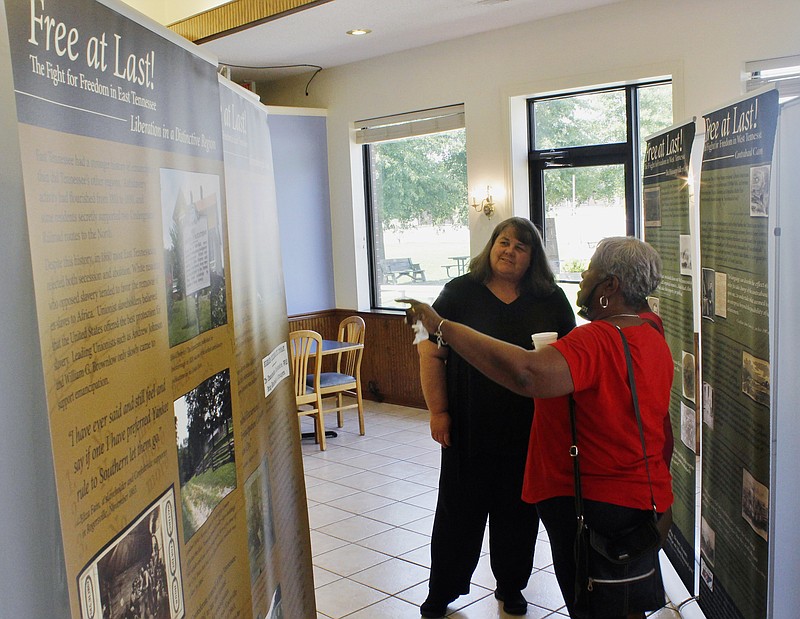BROWNSVILLE, Tenn. (AP) - Slaves who lived through the Civil War faced the massive challenge of starting their lives over. They were free from bondage, but no clear path existed for making the most of their emancipation.
They had to establish their own schools, churches and communities and fight for their civil rights in the midst of a country still deeply divided over what freed slaves deserved.
A new exhibit at the West Tennessee Delta Heritage Center in Brownsville seeks to honor the stories of an estimated 275,000 men and women in Tennessee who persevered through reconstruction to forge better lives for themselves. "Free at Last!" will be on display through the end of the month, and is free to view.
"I think it's important that we know as much about our history as possible," said Sonia Outlaw-Clark, director of the West Tennessee Delta Heritage Center. "I think in light of recent events, it's a good reminder of what a race had to go through to get where they're at. All of these people started over from scratch."
The eight-panel exhibit has information about reconstruction in east, middle and west Tennessee and traces emancipation, which came as early as 1862 for some slaves, but as late as 1865 for others. It was developed by the Tennessee Civil War National Heritage Area in cooperation with the Center for Historic Preservation at Middle Tennessee State University.
The exhibit was created in 2007 to help commemorate the 150th anniversary of the end of the Civil War (1865), and has since traveled to over 40 venues across the state.
During the war, the Union Army set up camps to provide rations, clothing and shelter for freed slaves. Teachers came to set up schools, and chaplains came to officiate weddings since many slaves weren't allowed to legally marry. The Freedmen's Bureau was established in 1865 and continued to provide government aid for the transition.
Outlaw-Clark said as she looked at the exhibit, she noticed that there were specific hardships for emancipated slaves in west Tennessee. It was a more impoverished region than middle or east Tennessee, and the economy depended more on slave labor than other regions of the state.
"Those first freedmen had a huge responsibility," Outlaw-Clark said. "They set the stage for everyone who came after them."
People visit the center from all over the country. The guestbook had dozens of signatures from half a dozen states and even the United Kingdom. Outlaw-Clark said that one of the goals in bringing exhibits to the center is that west Tennessee's history can be shared with people from around the world.
Renee Burley-Anderson and Eleanor Simms from Annapolis, Maryland walked through the exhibit on their way to Arkansas.
"This is nice, this is very educational," Simms said. "I think it is good, because our younger folks need to know where they come from. If they see this kind of stuff, they'll know how far we've come."
___
Information from: The Jackson Sun, http://www.jacksonsun.com
